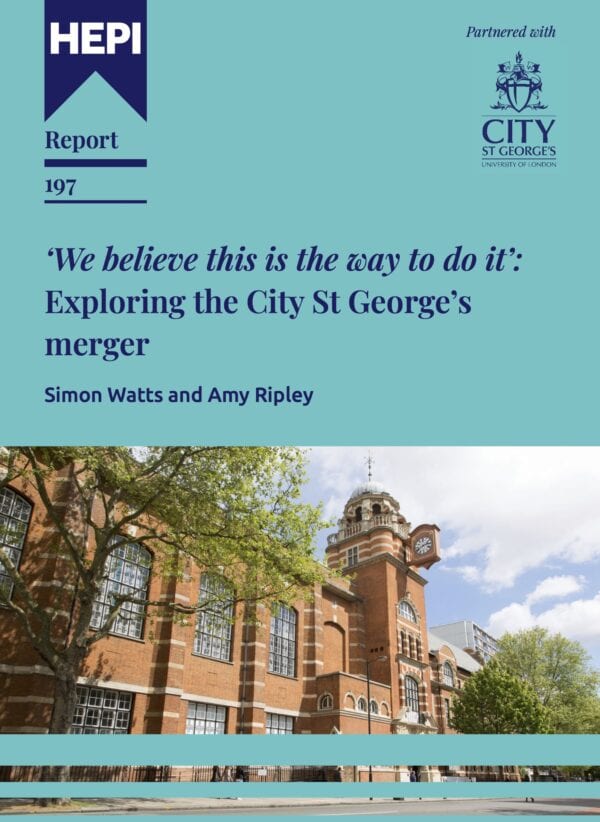Higher Education: 10 Questions from a Year 10
- This list of questions covering what young people want to know about higher education has been written by Ben Hillman*, who is a Year 10 pupil.
- For more on this topic, see HEPI’s blog from 2024 by Bridget Duffy entitled, ‘What do year 10 students think about higher education?‘
- On Tuesday, 8 July 2025, HEPI will be hosting a webinar with Unite Students to discuss the results and issues raised in the 2025 Unite Students’ Applicant Index. To register for the free webinar, click here.
- It is not too late to register for today’s HEPI / Interpath webinar on efficiency in higher education.
- How much harder are university courses than school? Do you have to be naturally gifted to excel at university? For example, can you do well in scientific or mathematical degrees through just hard work, or is there more to it? Do some courses require complex skills that you may not have from school, such as high levels of intricate practical skills for medicine or engineering, which you may not have needed for your GCSE or A-Level exams?
- How are lectures or seminars different to typical school lessons? How are you taught at university? How much of the learning process is taking notes, doing activities, researching, and so on? What is the environment like? For example, what are the class sizes like?
- How are you assessed at university? Most assessments at school nowadays are done in an exam at the end of the course. How different is the process at a university? For example, how much of it is exams, and how much is marked work throughout the course? Does this vary with the course?
- How do I pick the right course? Some people know exactly which career path they want to take, and this can be quite an easy decision for them, but many have no idea. What factors are the most important when picking a university and subject to study? Does a university’s prestige always correspond to its value to a student?
- How do different courses vary from each other? Many seem to believe that some courses are easier or require less work than others, or some are much more enjoyable. Is this the case? How do contact hours with your professors differ from course to course?
- What are the advantages of different types of degrees? How do hands-on qualifications such as apprenticeships compare to standard degrees? What are the benefits of part-time degrees or ‘sandwich’ courses?
- What is life at a university like? What are the pros and cons of living in student accommodation? How much space and freedom do you have? Is it easy to get distracted from your studies when living amongst all your friends? What are the most important factors when choosing accommodation?
- What is the work-life balance at university like? I would assume that university courses require a lot more effort than GCSEs or A-Levels. Is that always true? How much more (or less) time do you spend studying than at school? Do you have to sacrifice a social life to get good grades? Can you easily get burnt out at university? Does this vary with the course?
- Are campus or non-campus universities better? What are the advantages of each? Are they better for different types of people, or the different courses that they take? Are there noticeably different atmospheres between them? For example, do you get a better sense of community at a campus university, or do you grow more independent at a non-campus university?
- Is studying abroad a good idea? Most people stay in their home country to study. Is looking at universities in other countries a good idea, especially when doing a course such as languages? What are the advantages of studying abroad? Are single years abroad or exchanges a better alternative to this?
* To declare an interest, Ben Hillman is the son of Nick Hillman, HEPI’s Director.







Comments
Ruth Arnold says:
What great questions. Congratulations Ben — maybe these questions and answers from a range of people (universities and current students) could become the basis of a guide for other people your age.
Reply
Robert Insall says:
Heh. I answer a number of these questions myself, for potential students (usually a bit older – but it’s much better to ask them now). And one of the problems is – the university system itself has not answered these questions, or they are evolving too fast for us to understand what the right answer now is for someone who will be coming out of the system in 10 years.
But here is one answer that is fairly consistently true. If there is one subject you really love, that is the subject you should probably do. You will work harder if you love the subject. You will enjoy it more. Excellent grades in a degree that’s not particularly strongly favoured will serve you better than moderate grades in 2030s for a subject that seemed relevant in the 2020s.
If you _don’t_ particularly love a subject, choose something that is likely to make you desirable. Which usually means math-heavy as far as possible, and valuable to a range of futures.
Reply
John Wills says:
One of the pros of living in student accommodation is that you interact with people studying other subjects than your own. John Henry Newman (Idea of a University) claimed that this was the most important part of university life.
Reply
Add comment